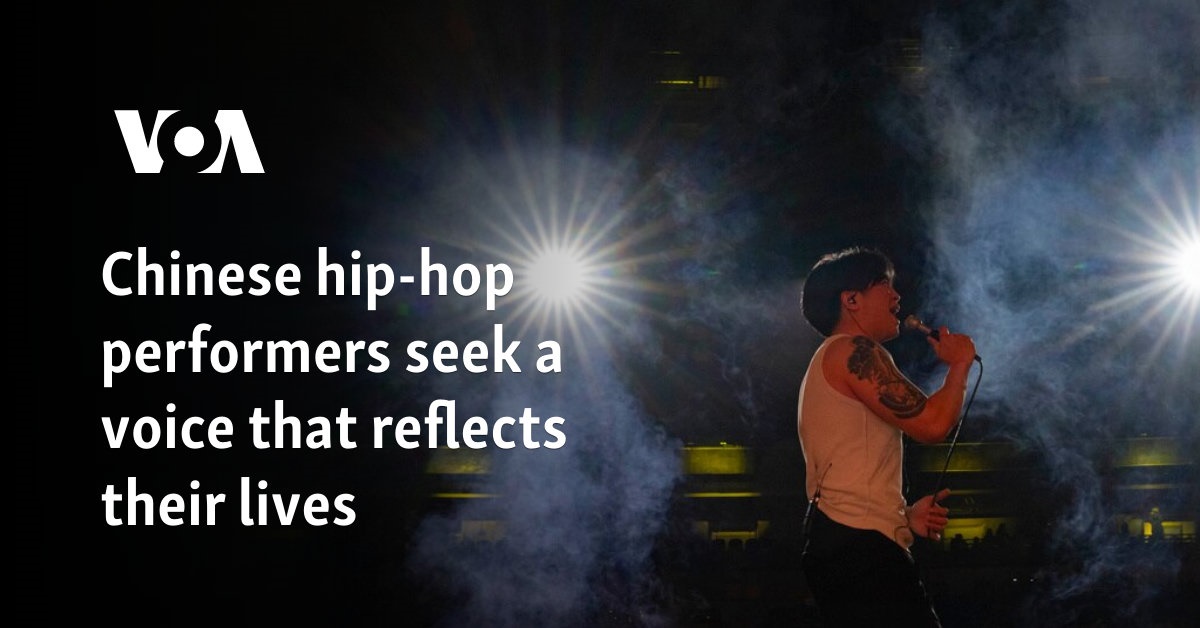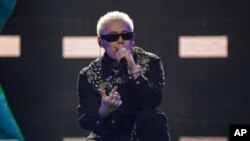In 2018, the censors who oversee Chinese media issued a directive to the nation’s entertainment industry: Don’t feature artists with tattoos and those who represent hip-hop or any other subculture. Right after that, a well-known rapper, GAI, missed a gig on a popular singing competition despite a successful first appearance. Speculation went wild: Fans worried that this was the end for hip-hop in China. Some media labeled it a ban.
The genre had just experienced a banner year, with a hit competition-format TV show minting new stars and introducing them to a country of 1.4 billion people. Rappers accustomed to operating on little money and performing in small bars became household names.
The announcement from censors came at the peak of that frenzy. A silence descended, and for months no rappers appeared on the dozens of variety shows and singing competitions on Chinese TV.
But by the end of that year, everything was back in full swing. What had looked like the end for Chinese hip-hop was just the beginning. “Hip-hop was too popular,” says Nathanel Amar, a researcher of Chinese pop culture at the French Center for Research on Contemporary China. “They couldn’t censor the whole genre.”
Since then, hip-hop’s explosive growth in China has only continued. It has done so by carving out a space for itself while staying clear of the government’s red lines, balancing genuine creative expression with something palatable in a country with powerful censors.
The effort has succeeded: Today, musicians say they’re looking forward to an arriving golden age.
Much of the energy can be found in Chengdu, a city in China’s southwestern Sichuan region. Some of the biggest acts in China today hail from Sichuan; Wang Yitai, Higher Brothers and Vava are just a few of the names that have made Chinese rap mainstream, performing in a mix of Mandarin and the Sichuan dialects.
Although Chinese rap has been operating underground for decades in cities like Beijing, it is the Sichuan region — known internationally for its spicy cuisine, its panda reserve and its status as the birthplace of the late leader Deng Xiaoping — that has come to dominate.
The dialect lends itself to rap because it’s softer than Mandarin Chinese and there are a lot more rhymes, says 25-year-old rapper Kidway, from a town just outside Chengdu. “Take the word ‘gang’ in English. In Sichuanese, there’s a lot of rhymes for that word ‘fang, sang, zhuang,’ the rhymes are already there,” he says.
Part of the city’s hip-hop lore centers around a collective called Chengdu Rap House or CDC, founded by a rapper called Boss X, whose fans affectionately call him “Xie laober” in the Sichuan dialect. The city has embraced rap, as its originators like Boss X went from making music in a run-down apartment in an old residential community to performing in a stadium for thousands.
“When I came to mainland China, they showed me more love in like three or four months than I ever received in Hong Kong,” says Haysen Cheng, a 24-year-old rapper who moved to the city from Hong Kong in 2021.
The price of going mainstream means the underground scene has evaporated. Chengdu was once known for its underground rap battles. Those no longer happen, as freestyling usually involves a lot of curse words and other content the authorities deem unacceptable. These days it’s all digital, with people uploading short clips of their music to Douyin, TikTok’s Chinese version, to get noticed.
Rarely can a single cultural product be said to have originated a whole genre of music. But the talent competition/reality TV show The Rap of China has played an outsized role in building China’s rap industry.
The first season, broadcast on IQiyi, a web streaming platform, brought rap to households across the country. The first season’s 12 episodes drew 2.5 billion views online, according to Chinese media reports.
In the first season, the show relied on its judges’ star power to draw in an audience. Two winners emerged from the first season: GAI and PG One. Shortly after their win, the internet was awash with rumors about the less than perfect doings of PG One’s personal life. The Communist Youth League also criticized one of his old songs for content that appeared to be about using cocaine, very much violating one of the censor’s red lines.
Then came the 2018 meeting where censors reminded TV channels of who could not appear on their programs, namely anyone who represented hip-hop. PG One was finding that any attempts to release new music were quickly taken down by platforms. The platform, IQiyi, even took down the entire first season for a while.
But by late summer 2018, fans were excited to hear that they could expect a second season of The Rap of China, though there was a rebrand. The name in English stayed the same, but in Chinese the show’s name changed from China Has Hip-Hop to China Has ‘Shuochang,’ a term that also refers to traditional forms of storytelling. Regulators had given the go-ahead for hip-hop to continue its growth in China, but artists had to obey the government censors. Hip-hop had to stay away from mentions of drugs and sex. Otherwise, though, it could proceed.
“It was a success for the Chinese regulators,” Amar says. “They really succeeded in coopting the hip-hop artists.”
With tight censorship on the entertainment industry and a ban on mentions of drugs and sex in lyrics, artists have reacted in two ways. Either they wholeheartedly embrace the displays of patriotism and nationalism or they avoid the topics.
Some, like GAI, have fully taken on the government’s mantle in the mainstreaming of hip-hop. He had won The Rap of China with a song called Not Friendly in which, in classic hip-hop fashion, he dissed other rappers. Just a few years later, Gai is singing about China’s glorious 5,000 years of history on the CCTV’s Spring Festival New Year’s Gala broadcast.
The red lines have also pushed artists to be more creative. But developing a genuine Chinese brand of rap remains a work in progress. Hip-hop got its start from New York’s boroughs of Brooklyn and the Bronx, where rappers made music from their tough circumstances. In China, the challenge is about finding what fits its context.
Wang Yitai, who was a member of Chengdu’s rap collective CDC, is now one of the most popular rappers in China. His style has infused mainstream pop sounds.
“We’re all trying hard to create songs that not only sound good, but also topics that fit for China,” Wang says. “I think hip-hop’s spirit will always be about original creation and will always be about your own story.”


